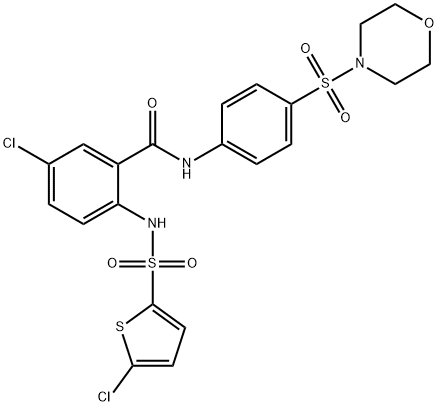Soluble guanylate cyclase (sGC) is the primary cellular receptor for NO. NO binds and activates a heme group in sGC, initiating the conversion of GTP to the second messenger cGMP. cGMP subsequently mediates a number of signaling cascades leading to vasorelaxation and inhibiting smooth muscle proliferation, leukocyte recruitment, and platelet aggregation. Oxidation of the heme results in its dissociation from sGC and an impairment of NO signaling, which has been linked to hypertension, hyperlidemia, cardiovascular disease, and diabetes. Ataciguat is an anthranilic acid derivative that activates the oxidized (heme-free) form of sGC (EC50 = 0.5-10 μM in purified bovine lung or crude human corpus cavernosum isolates) by binding to the heme pocket and mimicking its function. It has been shown to increase cGMP levels in cultured rat aorta smooth muscle cells and to induce vasorelaxation of isolated rat aorta, porcine coronary arteries, and human corpus cavernosum (EC50 = 1-10 μM).

